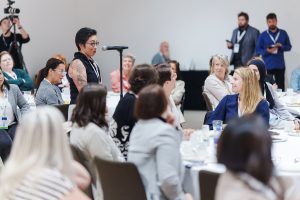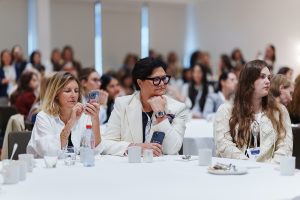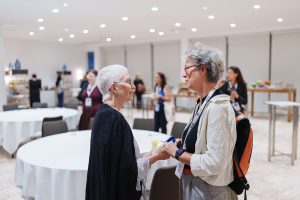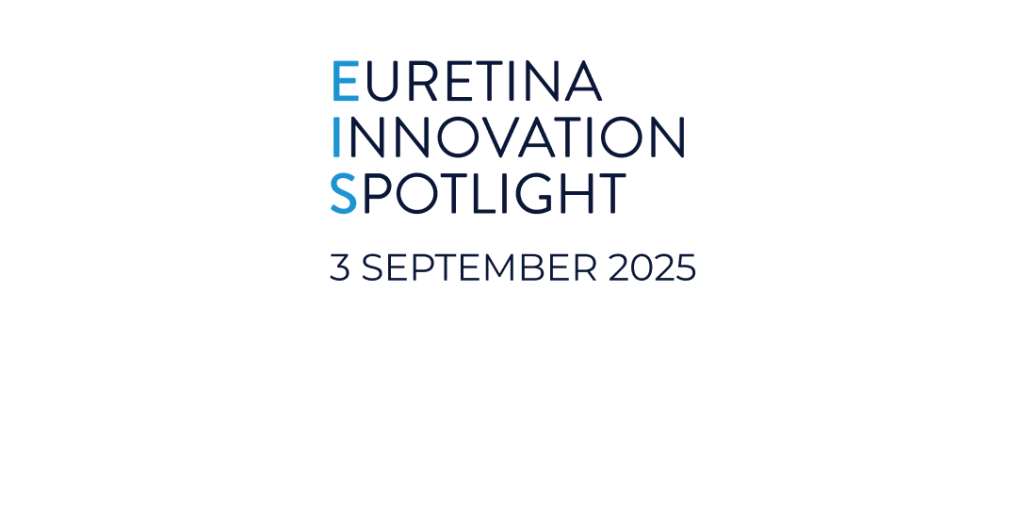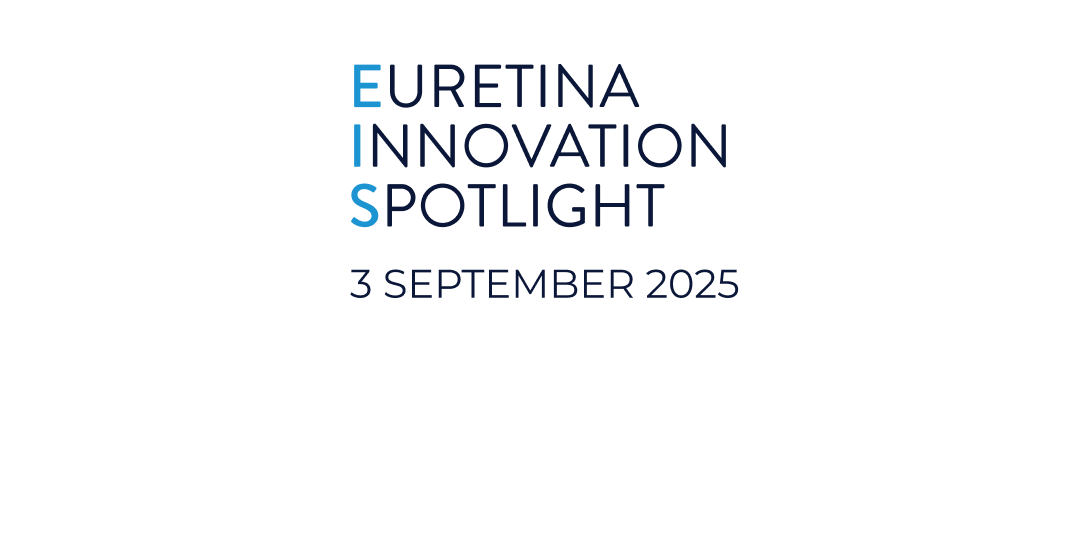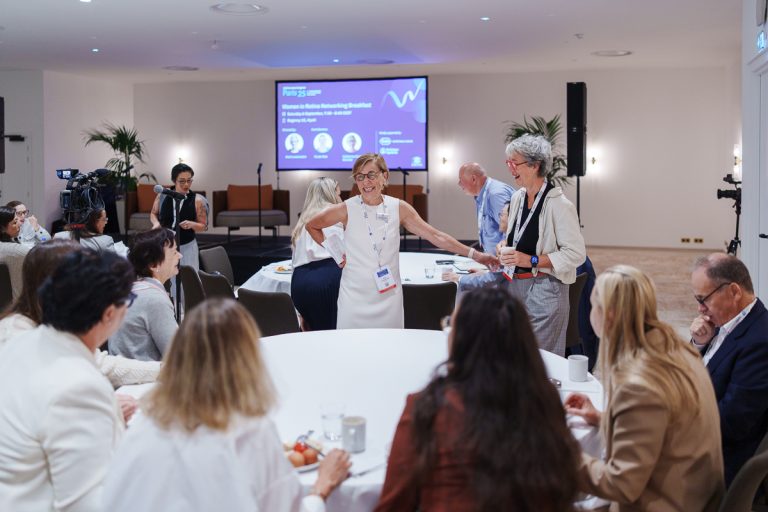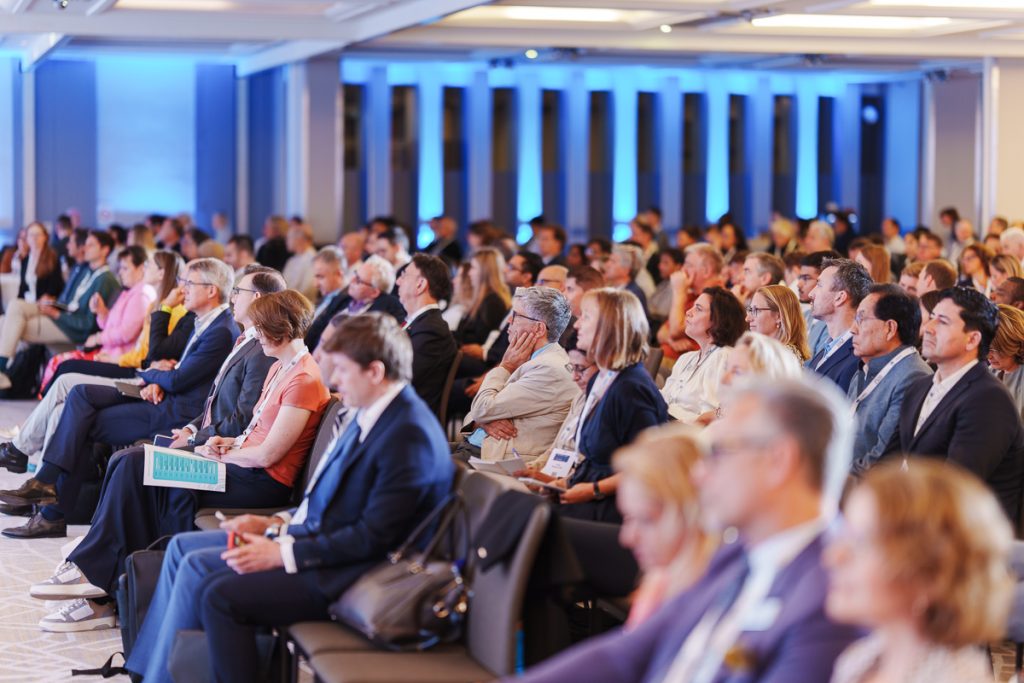A packed early-morning “Women in Retina” networking breakfast set the tone for the week, as EURETINA President Anat Loewenstein moderated an open discussion with Prof Tunde Peto (Northern Ireland) and Prof Catherine Creuzot-Garcher (France). What began as reflections on whether women-focused initiatives are even necessary quickly crystallised into a set of practical levers—from how we talk about “help” at home, to how we invite (and accept) moderation roles, to measurable targets for programme balance.
Prof Loewenstein opened with candour: earlier in her career she believed no special structures were needed—“women are like men”—but sustained experience across “traditional and structured systems” changed her mind. Small, culturally embedded habits matter. She illustrated this with a personal story from her daughter’s business-school days: in meetings, her daughter instinctively sat at the side while her husband took a place at the centre table—an emblem of how socialised behaviours quietly shape who “sits at the table.”
She thanked the breakfast sponsors (Roche & Boehringer Ingelheim) and invited an open, participatory format—“a lot of fun… very open conversation”—underscoring that this is the second year of the gathering and that momentum is building.
Prof Creuzot-Garcher admitted she once felt there was “no need to protect women,” trusting that merit would prevail. Yet incidents accumulate: being advised to excuse an unavoidable absence by citing “issues with your children,” or finding school appointments fixed at times that presume the mother’s availability. For her, the challenge is less medicine than society’s expectations. The message: obstacles often arise not in the clinic or lab, but in the scaffolding around them.
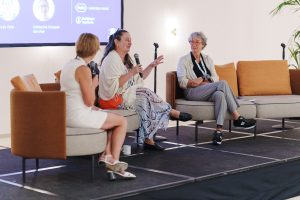
Peto added a bracing note: not all headwinds come from men. A formative negative experience with a female professor left her with a lasting rule of thumb—when faced with a difficult decision, “do the direct opposite” of what that mentor would have done. Language also matters, she stressed. A husband who “helps at home” isn’t helping; he lives there, shares the household, and parents equally. Reframing the language reframes the expectation.
Programme balance was a recurrent theme. EURETINA’s initial “50/50” aspiration for invited speakers and moderators proved hard to enforce, particularly in surgical sessions, prompting a more pragmatic minimum target (now set at “at least 30%” women in invited sessions). Two root causes surfaced: organisers repeatedly invite the same familiar names, and many talented women surgeons are less vocal or visible by choice—leading to a self-reinforcing loop. Loewenstein noted that submissions lacking women are being sent back for revision, a simple but effective nudge.
From the floor, participants reinforced the power of intentional sponsorship. One US attendee argued that opportunities to “rise” are decisive, and that women already “on the panel” should bring another woman with them. She invoked Madeleine Albright’s famous warning about women who don’t support other women—a reminder that allyship must be active, not assumed.
Practical advice for stepping forward featured prominently. Prof Peto observed that when invited to moderate, men often accept immediately while some women hesitate—“I’ve never moderated… I’m not sure.” Her solution is structural: appoint at least two moderators so there is always an experienced counterpart. Skills like moderating are learned in the doing; the only way to become good is to start, supported and visible. The call-to-action was clear: say yes, try, learn, repeat.
Mentorship emerged as the other major lever. Loewenstein traced a long arc through formal programmes and industry-supported schemes, focused variously on positioning within one’s institution, external visibility, and the ever-present “imposter syndrome.” EURETINA’s own mentorship pathways were highlighted; mentees are often dazzlingly capable, yet still benefit from targeted guidance. The recommended mindset: seek a mentor (of any gender) who can flex—from paper strategy to departmental politics—and be prepared to become one in turn.
Another concrete tactic: be “situationally aware” about where influence resides. During COVID-era committee building, Prof Peto noticed women were frequently channelled toward “back-to-work” or “wellbeing” groups while men concentrated on finance. She countered by asking to serve where budgets are decided, explicitly foregrounding her quantitative expertise. The broader lesson is portable: state your strengths, choose rooms where decisions and resources are allocated, and resist pigeonholing.
On work–life balance, the panel steered away from the myth of a daily 8-8-8 equilibrium. A more realistic cadence, they argued, is weekly, monthly, or quarterly—set cycles for recharge, admin, and family—with responsibilities shared across partners in newer generations. Still, a quick show of hands suggested many under-45s continue to shoulder more domestic strain than their male counterparts; progress is real, but uneven. Sandwich-generation pressures and the invisible labour of logistics remain live stressors.
Audience voices rounded out the session. One contributor from Brazil urged colleagues to practise saying no and to delegate—an antidote to the reflex of “trying to do everything at once.” Another reminded the room that external support from men is welcome and common, but women must also be deliberate in supporting one another.
Prof Loewenstein closed with a practical checklist. Believe in yourself and resist the imposter script. Ask for help—and reframe “help” as shared responsibility. Promote other women, especially into visible, invited roles. Seek (and offer) mentorship at every stage. Know your worth. The closing flourish—an allusion to “Anything You Can Do, I Can Do Better”—landed not as a boast but as a reminder that capability is equal, while opportunity is constructed. Change, in other words, will come from a thousand micro-decisions: how we phrase an email, who we invite to moderate, which committee we join, when we say yes, and when we say no.
If the goal of the breakfast was to move from sentiment to structure, it succeeded. Targets for representation, structural support for first-time moderators, proactive mentorship, and sharper language around domestic equity are all portable tactics attendees can implement on Monday morning. The cultural current is strong; steering it requires intention—and, as this session made clear, a little collective courage.
